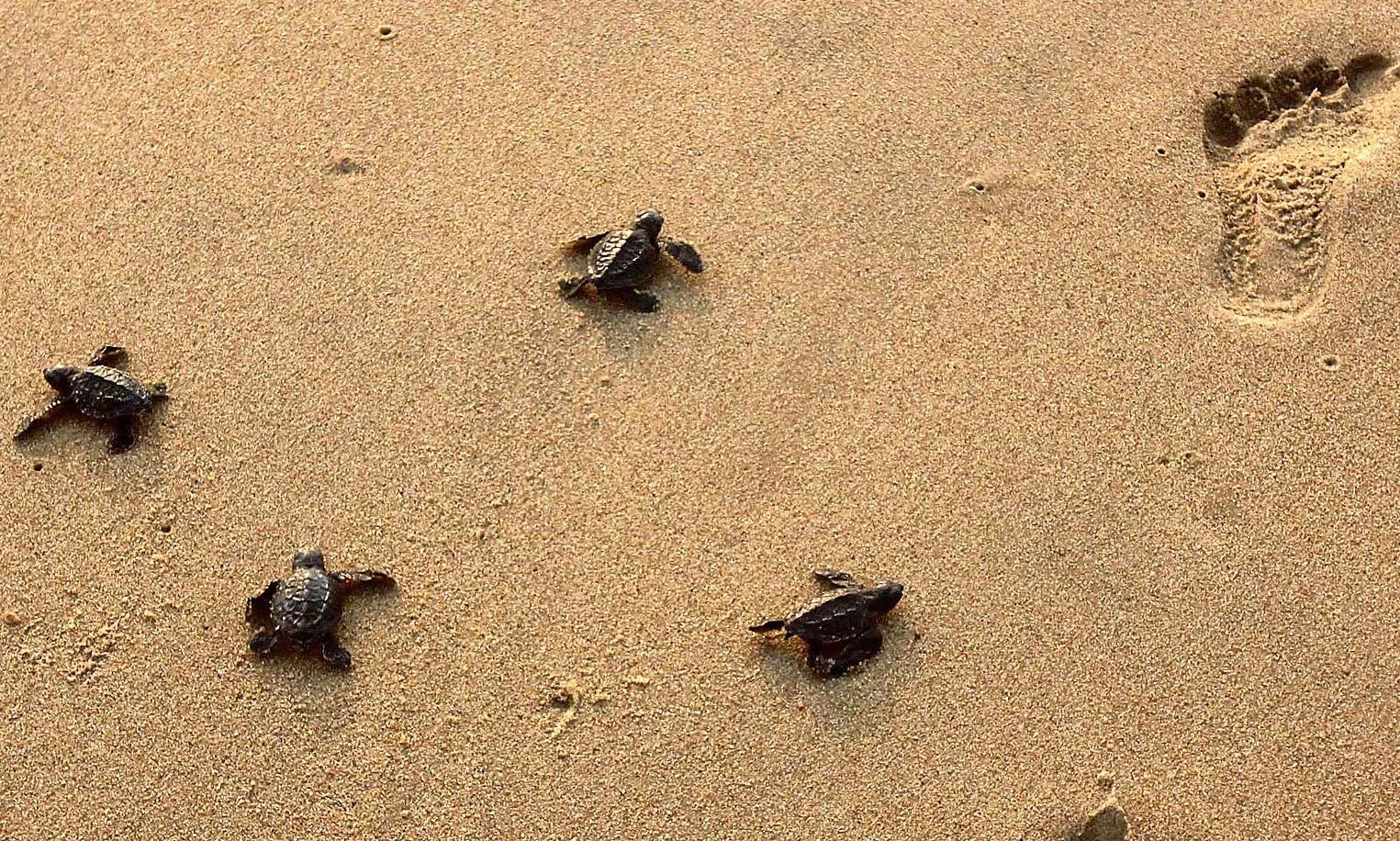Dead Olive Ridley Turtles on Visakhapatnam's RK Beach Spark Concerns
Amid dredging activities and trawler operations, environmental activists express alarm over the deaths of Olive Ridley turtles, highlighting ongoing conservation efforts and challenges faced during the breeding season

Visakhapatnam: Environmental activists have raised concern over three Olive Ridley turtle found dead on the RK Beach in Visakhapatnam. Their death comes amid dredging and beach nourishment works currently underway along the beach, apart from trawlers operating in the sea.
Olive Ridley mother turtles venturing ashore to lay their eggs along the sandy shores between RK Beach and Bheemili is an annual phenomenon. The mother turtles are drawn to the sloping shores of the area, ideal for nesting and laying eggs.
Authorities have even set up five hatcheries between Bheemili and RK Beach. Under careful supervision of Visakhapatnam Forest Department, each hatchery is diligently manned by trained personnel. Their duties encompass collection of eggs laid by mother turtles, bring them to the hatcheries and overseeing them vigilantly until their hatching, with baby turtles bumbling their way into the sea to lead their lives.
Kumar Nath of the forest department disclosed that they have so far gathered 142 eggs from two clutches. The eggs undergo delicate handling, placed in bags alongside nesting sand, before being reburied in the hatchery for incubation. There is meticulously documentation of the number of eggs, discovery dates and estimated hatching dates. This ensures a thorough monitoring of the hatching process.
Amid such conservation work, Olive Ridley turtles turning up dead on the beach is a matter of grave concern. Visakhapatnam district forest officer (DFO) Anant Shankar acknowledged the report of turtles being found dead.
He disclosed that since January, when the breeding season of Olive Ridley turtles begins, they have found 8–10 dead turtles along the sea coast. The DFO said this typically happens when turtles come to surface for breathing and inadvertently become ensnared in the trawling nets of heavy fishing vessels.
With regard to their conservation efforts, Anant Shankar said they are vigilant during the January to May breeding season, constructing hatcheries, finding clutches of eggs and releasing hatchlings.
“The incubation period for turtle eggs spans 40-45 days. Additional staff are deployed during the period. The entire expenditure comes to ₹40–50 lakh. We are actively seeking sponsors to support this year's programme,” the DFO said.

